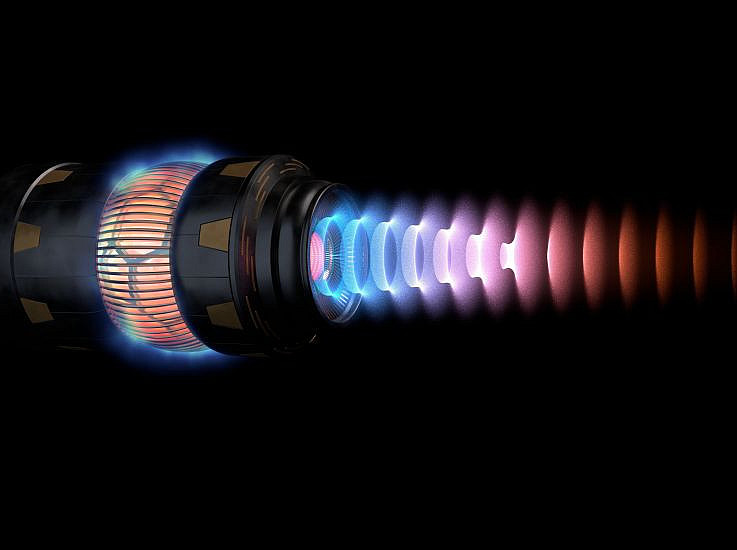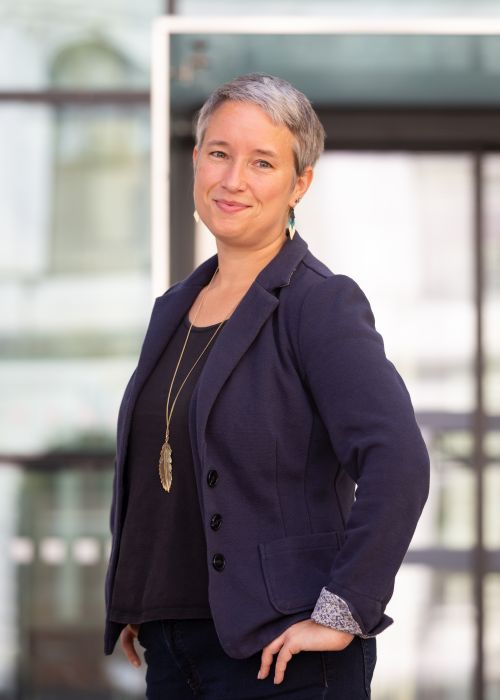From ISM to ION: An Imagined Excursion

At EDU|days 2023 at the University for Continuing Education Krems, Elke Höfler was invited as keynote speaker and took the audience on an imaginary excursion - from ISM to ION.
Sounds cryptic? We clarify.
Everything used to be ...
The basic thesis is that word formations ending in "-ism" tend to describe entrenched patterns and value attitudes that hinder progress and agility in our fast-moving times. In contrast, there are word formations and terms with the ending "-ion". They are less rigid, appear more fluid and thus more flexible.
Stability is good, but our present is not. We live in a very fast moving time. The world is constantly changing and it is becoming more and more difficult to think in old, solidified patterns and to remain in these thought patterns, Elke Höfler begins her presentation. As an example she mentions, among other things, the TraditionallISM. Tradition is important, but tradition as a mindset and value system is oriented toward the past and not toward the future.
In her keynote address, Höfler states in this regard, "We are in a phase of transformation, and these changes require that we change as well." According to Höfler, these changes also affect how we view the grand old theories of learning, such as behaviorism, cognitivism, and constructivism, which have shaped our previous understanding of learning, teaching, and education. (Note cg: example multiple choice -> incorporate behaviorist testing?). Again, we need to look critically at what we are asking learners and teachers to do and achieve in the learning process.

Are we VUCA & BANI
The term VUCA comes from economics and stands for volatility, uncertainty, complexity and ambiguity. Elke Höfler points out that education and schooling also face the challenges of volatility, uncertainty, complexity and ambiguity (VUCA) of the present and that these dimensions have to be considered by educational designers and teachers in order not to have to fall back on the BANI model. BANI is an acronym that comes from English and stands for Brittle, Anxious, Non-Linear, and Incomprehensible. "These are value attitudes that we actually can no longer adopt, but we have to approach the future in an open, visionary way," Höfler elaborates. She breaks down the term VUCA this way: "In today's world, we need vision, understanding, clarity and agility to respond to the new challenges."
"These are value attitudes that we can actually no longer adopt; instead, we need to approach the future in an open, visionary way," Höfler elaborates. She breaks down the term VUCA this way: "In today's world, we need vision, understanding, clarity and agility to be able to respond to the new challenges."
Is there only one future, or are there rather futures? "Imagine a future!" Höfler asks the audience and adds the question: "Do we know how the future will look like?" In order to help shape the future and have it occur, we need IONS, namely ImaginatION, AnticipatION and a VisION. According to Elke Höfler, words with the suffix -ION tend to have more positive connotations than the traditional -ISMs and also help us to imagine and create the future. She also addresses the fact that today, in addition to vision, a large portion of imagination is also needed and brings the following example: "Who would have thought six months ago that the profession of prompt engineer would exist?" Höfler expects that the education system will be subject to disruption and that schools should be prepared for these new challenges in a future-oriented manner. She believes that there is a need for a pragmatic approach to the developments surrounding artificial intelligence and that the education of the future should focus on the process rather than the product. Höfler also has a positive outlook on this, saying succinctly, "New things work, but they may also be different."
